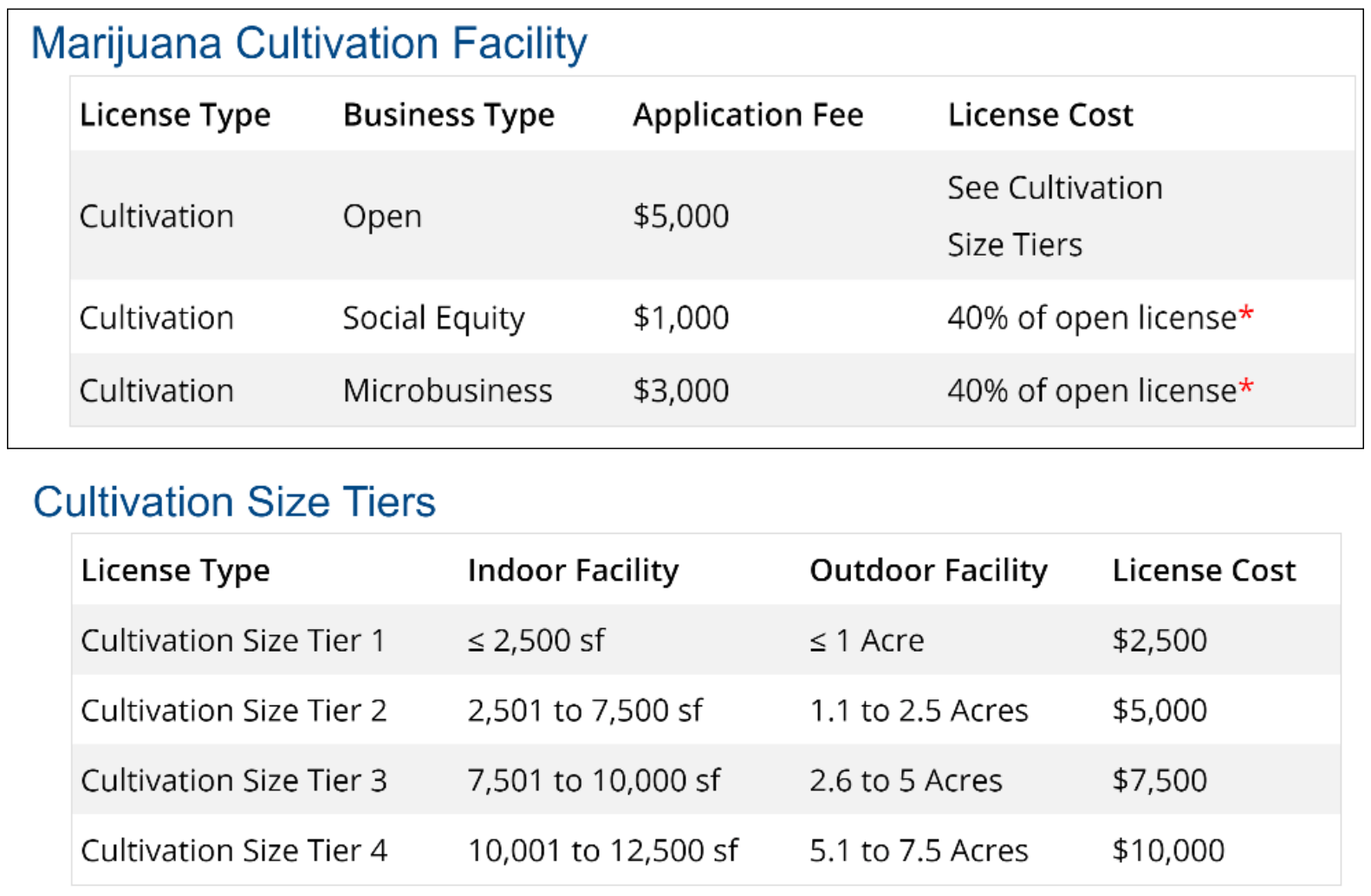Delaware Cannabis Cultivation: Which Tier is Right for Me?
Breaking Down Delaware’s Available Cultivation Tiers
With cannabis cultivation licenses on the horizon in the First State, we wanted to offer a breakdown of the tier sizes and what are the risks and rewards associated with each, as not every cultivation option may be the right one for you.
Total Cannabis Cultivation Licenses Available
Some background first as things get a bit hairy in Delaware for licenses. There are 60 total cannabis cultivation licenses being issued, which are separated into three license types: open, microbusiness, and social-equity licenses. Of these, 20 will be allocated for open cultivation licenses, 20 for microbusinesses, and 20 for social equity licenses. 10 of these that are allocated for social equity licenses will be awarded to applicants with less than 2,500 sqft for the facility and the other 10 to applicants with greater than 2,500 sqft. On top of this, the open licenses themselves are divided into tiers 1-4 which range anywhere from less than 2,500 sqft to a maximum of 12,500 sqft for indoor grows and one acre to 7.5 acres for outdoor grows.
Confused? Don’t worry, we have some visuals provided by the Office of the Marijuana Commissioner!

So, what Delaware cultivation license should you apply for? Let’s dive in!
Picking Your Delaware License Type: Open, Social Equity, or Micro?
Open Cannabis Licenses
First, let’s assess the business license types. Most applicants will be pursuing an open license (this is the one which has the most licenses being issued too). There are no pre-required steps to apply for this license, which is appealing. You also have much greater flexibility on the overall size of your cultivation facility.
Social Equity Cannabis Licenses
If you’re applying for a cannabis license as a social equity applicant, you will have had to secure social equity status prior to submitting your application through the validation process. This is only for individuals with past cannabis-related convictions or residents of neighborhoods heavily affected by past marijuana enforcement. If you did not go through the validation process, you will not be eligible as a social equity applicant and if you apply as one without this step, your application could be disqualified.
Microbusiness Cannabis Licenses
And finally, we have microbusinesses. These are available for both open and social equity applicants and are for those who intend to hire no more than 10 employees and will not operate a facility with a marijuana plant grow canopy area greater than 2,500 square feet. This can be a great option for smaller operators who don’t want high overhead or who want a small employee base.
Picking Your Cannabis Cultivation Tier
Smaller Cultivation Tiers
Delaware’s cultivation tier options are available for both open and social equity applicants. As stated previously, there’s great deal of latitude on sizing options. The benefit with looking at a smaller overall canopy and cannabis facility size is the costs are dramatically reduced. Less personnel, less overhead, less initial clones needing to be purchased. However, the downside with this is there is only so much growth capability before a plateau or even a potential downturn occurs. There may also be difficulties meeting demand needs or being overshadowed by larger operators.
Larger Cultivation Tiers
This leads us to the larger tier sizes (those tier three and fours). The costs will be higher at the onset to get a business of this scale up and running, which may dissuade a number of applicants (and potentially increase individuals chances in a lottery). There is also more reasonable assumptions that, as a larger cultivator, you will be able to more readily stand out from other operators given diminished competition and sheer scale of operational capabilities. The total sales can also be much higher for a larger cultivation tier than those smaller tiers.
How You Can Get Started Cultivating Cannabis In Delaware
There are plenty of options available in Delaware when it comes to cannabis cultivation. At the end of the day, the best thing you as a prospective applicant can do is to assess the following:
- Check your status as a social equity applicant
- Assess your finances and see which tier may be best from an initial cost perspective
- Think about the lottery component and see how you could improve your chances against the competition
- Look to the future and what you want out of the cultivation license
The licensing process is going to be an arduous one in Delaware with templates and guides available for prospective applications, but the sheer volume of the requirements may make this an uphill battle for most. Luckily, we at Canna Advisors are here to help and are ready to discuss how we can best serve your Delaware needs.
Contact our consultants to start the conversation and get started on your Delaware cultivation license application.